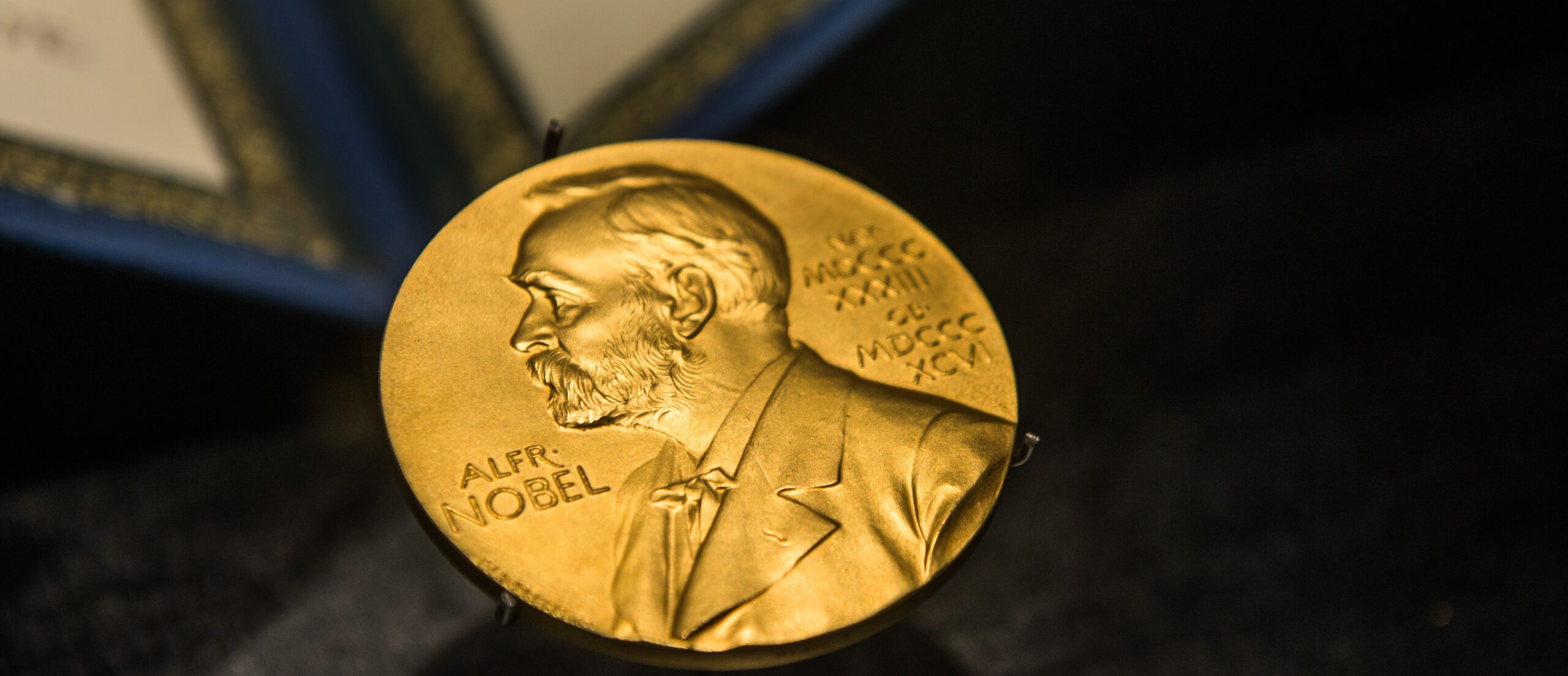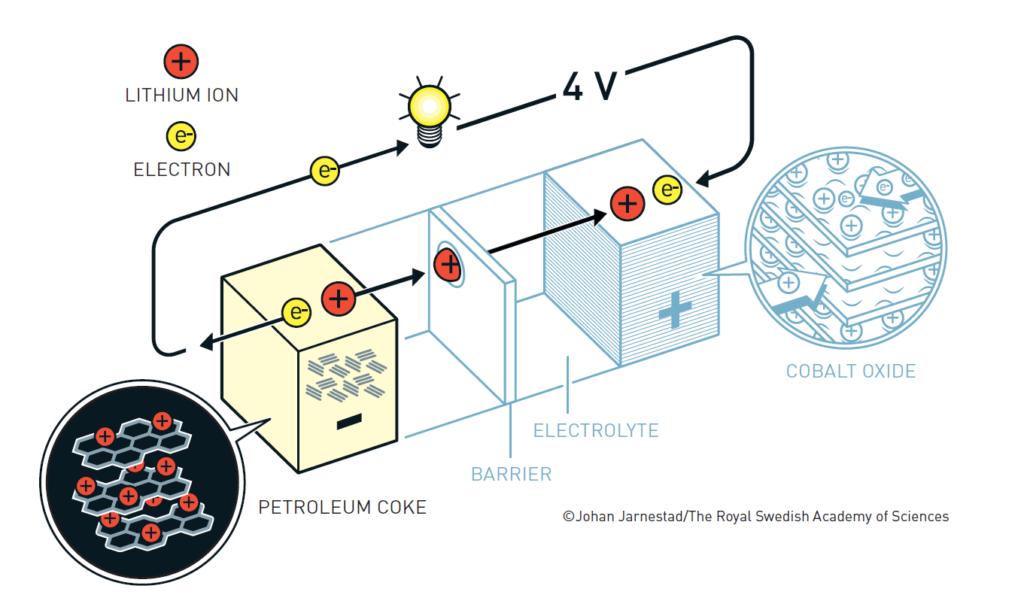
John Goodenough has long been recognised as the perennial nearly-man of the Nobel Prize for Chemistry. The announcement of this year’s prize—for the development of lithium-ion batteries—therefore came as a welcome shock for many; not least of all Goodenough and his co-laureates Stanley Whittingham and Akira Yoshino.
After Whittingham’s initial demonstration of a rechargeable battery based on lithium-ion intercalation into a titanium disulfide cathode with a metallic lithium anode, Goodenough improved the cathode to cobalt oxide. The final step in creating consumer-ready batteries came in Yoshino’s replacement of the metallic lithium anode with one based on petroleum coke.

An electric revolution
These energy-dense rechargeable batteries have revolutionised personal electronics, and transformed modern life around now-ubiquitous portable devices.
Their ability to provide a repeatable, rapid response means batteries are now laying the foundations for renewable energy systems globally – providing vital resiliency and flexibility to enable wind and solar power to be integrated at scale. Simultaneously, through the electrification of transport, they offer the potential to finally wean humankind off its addiction to oil.
batteries are…laying the foundations for renewable energy systems globally – providing vital resiliency and flexibility to enable wind and solar power to be integrated at scale
Battery optimisation
Kiwi Power was charged with optimising the UK’s first grid-scale battery at Leighton Buzzard in 2014, and we now manage a 60MW portfolio of lithium-ion batteries on behalf of our clients. In that time batteries have come to almost completely dominate UK frequency response markets, where a combination of speed and controllability make them an ideal asset.
The August blackout highlighted the importance of ultra-fast response to renewable electricity systems. The synthetic inertia batteries provide can slow the Rate of Change of Frequency and help to avoid generation disconnections which otherwise exacerbate the problem.
Of course, there’s more to managing batteries than simply charging and discharging in response to different grid or price signals. Batteries are built to deliver a certain number of cycles and there is a cost-benefit to every action. Maximising value requires a detailed understanding of a system’s characteristics and means constantly evaluating the revenue opportunity against its impact on lifespan.
Benefit for humankind
Analysis suggests that meeting the UK’s 2050 carbon targets will require more than 100GW of new wind and solar generation over the next 30 years, balanced by 30GW of short duration storage, so for those that can compete and deliver the best outcomes, there is a huge market opportunity.
It goes without saying that Kiwi Power were delighted to hear of the recognition of the laureates behind this transformational technology. In his will, Nobel famously created the prizes to be awarded to those who confer “the greatest benefit on mankind.” It is hard to think of three more deserving recipients.
Keep up with global energy industry trends and Kiwi Power’s developments in our Resource Centre.